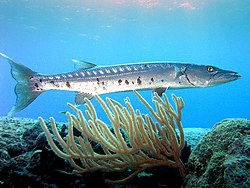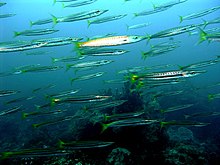
The AL-390 is big and roomy for a dinghy, with a durable aluminum floor. The
boat in the picture Model 13060983) is made from Hypalon, so the fabric holds up
longer in a high-UV tropical environment. Our customers have given the AL-Series
boats great reviews on this site.
Our Search for the Perfect Inflatable Boat
West Marine constantly strives to improve our selection of affordable
inflatable boats, and we’re justifiably proud of our fleet. Our boats combine
progressive technical features, rugged durability and great design, so you can
be confident of superior value.
We achieve this with a team of committed veteran boaters like Dave Ungerecht,
our Senior Category Manager for inflatable boats, who has guided our development
program for over 15 years. A lifetime boater, fisherman and sailor with
experience in the golden age of Santa Cruz boatbuilding, Dave is constantly
testing the latest designs. He’s a hands-on manager who deals directly with our
customers, so he knows the strengths and weaknesses of each of our
inflatables.
West Marine inflatables are created by world-class naval architects like
Henning Neumann, who has designed many of our boats since 1990. He’s also drawn
boats for Avon, Metzeler and several top manufacturers during his career of over
50 years. Dave and Henning are just two of the folks behind our boats. We also
work with the top designers at Zodiac in France to continue to offer best
quality and features at value prices.
Four Steps for Selecting a Boat
How do you select the boat that best meets your requirements with so many
available choices? Just follow these four steps:
- Decide if you want a boat that can plane (do you want to go fast?)
- Choose the floor construction that best balances
portability and performance
- Select the right fabric for the locations where you’ll use
the boat
- Buy the biggest boat that fits within your budget and space
requirements
Floor Construction and Boat Category
An inflatable’s floor construction is the key to the tradeoff between
portability—ease of assembly and compact storage—and the rigidity needed for
best performance. A rigid deep-V hull made from composite plastic, fiberglass or
aluminum—a Rigid Inflatable Boat—is an efficient high-performance planing hull,
but RIBs often must be stored on a trailer or set of hanging davits. Boats with
more flexible fabric floors fold to a light, compact shape, but their
flexibility exacts a performance penalty. If you want your boat to plane,
allowing you to exceed 5 mph, a semi-rigid floor is required.

Roll-up (RU) Boats
Like dinghies, these boats have floors you don’t have to remove when stowing
the boat. Roll-ups like our RU3 can be unrolled, inflated and launched in
minutes. Floors use wooden slats enclosed in fabric pockets, and you don’t need
to remove them for storage. Roll-up boats have a transom, so you can use a small
outboard motor. Roll-ups excel as tenders. Their flat bottoms and small engines
(up to 4HP) make their performance non-planing, limiting their range to
in-harbor, relatively flat-water travel.

Sportboats (SB)
Sportboats are inflatables with a removable rigid floor system made from
plywood, composite plastic or aluminum. The floor assembly is made stiffer with
the addition of stringers, which run fore and aft to hold the floorboards in
alignment, and aluminum extrusions to hold the edges in position. With the
floorboards assembled and the port and starboard hull chambers and small tapered
keel tube inflated, the boat’s floor fabric is stretched taut and takes on a
shallow V-shape. This enables the boat to ride through chop and track in turns
better than a flat-bottomed boat. The floor also makes sportboats heavier than
dinghies, but these boats are fast and lively with outboards from 6–25hp and
offer a great performance for the price.

High Pressure (HP) Inflatable Floor Boats
Take a sportboat, such as the Wood Floor 275 or 310, and trade the wood floor
for a high-pressure inflatable floor, and you have an HP Inflatable Floor boat
(sometimes called an Airfloor boat), combining the performance of a sportboat
with the light weight and compact stowage of a soft stern dinghy. Its special
high-pressure inflatable floor (pumped up to 11psi) is substantially lighter
than floorboards and, when deflated, can be rolled up right inside the boat.
Inflatable floor boats jump on plane quickly and achieve fine performance using
only a small outboard, thanks to their low weight. Our 60lb. HP 310 will plane
with one person using only a 5hp outboard. The boats flex just enough to absorb
wakes and waves that would threaten to throw you out of a hard-bottomed boat. HP
floor boats are a brilliant combination of benefits, not a compromise. And the
setup time is very short!

Rigid Inflatable Boats (RIBs) or Rigid Hull Inflatables
RIBs offer the “real boat” performance and strength of a rigid moderate- or
deep-vee hull. Their fiberglass hulls carve turns and cut through chop like
conventional boats and shrug off abrasion from cruising gear, sand and gravel,
dive tanks, etc. But unlike conventional boats, the addition of inflatable tubes
to the topsides makes them more stable, more buoyant and less likely to scar the
topsides of other vessels when used as a tender.
Their lack of portability is the price you pay for a RIB’s performance. The
hulls cannot be disassembled, and therefore you can’t stow your RIB in a bag in
the lazarette. You can deflate the tubes and stow the boat on deck in far less
room than the inflated boat, but it still takes up space. Therefore, we
generally recommend RIBs for owners who either intend to stow their dinghies
inflated on deck, on davits, or deflated and lashed on a weather deck. Their
light weight also makes them a cinch to trailer on a light-duty boat trailer.

Compact CR or Folding RIBs
Compact RIBs have a hinged folding transom, which allows the boat to be
stored in much less space, and are super portable—we’re talking roof rack to
water in just 10 minutes! The hull is made from either fiberglass or RIMTEC
injection-molded polyester, and has a shallow V-shape. The transom is a plywood
sandwich that is firmly bonded to the inflation tubes. A flexible fabric hinge
connects the floor to the transom, allowing the transom to fold flat when
stored. A large zippered bag is included for storage, and the stowed boat looks
like a giant surfboard in a travel bag. While still large, the Compact RIB will
fit on a foredeck or under a boom much more compactly than a normal RIB. It also
fits nicely on vehicle roof racks or in the back of a station wagon.
Some Considerations:
Outstanding warranties: West Marine boats have a five-year
air-holding warranty on hull construction and a one-year warranty on parts and
accessories.
Accessories, valves and hardware: Each of our manufacturers
fits excellent accessories like stainless steel towing eyes, strong aluminum
oars, reliable inflation valves and heavy-duty pumps to help you inflate your
boat quickly with minimal effort.

Our Roll-Up 3 is a flat-bottom dinghy that stows compactly without the hassle
of removing a floor. Best for around-the-harbor transit, since it doesn’t plane.
The short-shaft Torqeedo 1003 electric outboard (shown in the picture) is a
great companion to this dinghy.
Hypalon or PVC Fabric?
The location where you intend to use your boat is the key factor in deciding
which hull fabric, PVC-coated polyurethane cloth or Hypalon (neoprene-coated
nylon). Both fabrics are rugged and dependable, but if you will do most of your
boating in tropical conditions, a Hypalon boat will last longer because of its
better resistance to UV degradation. Our Hypalon boats are made of Pennel Et
FLippo Orca 215 Hypalon fabric. We purchased a multi year supply of this
material, as the new replacement CSM fabric used by other boat manufacturers
does not hold up in extended UV tests and will not last as long. This is another
reason why purchasing a West Marine boat is a great value.
Now Buy a Reasonably Sized Boat!
There is a good reason we make this recommendation, which may seem
self-serving. Bigger inflatables handle dramatically better than smaller ones.
The differences between an 8'6" sportboat and a 10' sportboat in handling,
carrying capacity and ride, due to the small surface area of the small boat
hulls, are greater than you can imagine until you actually try them
side-by-side. A sportboat less than 9' long is capable of planing, but tends to
be squirrelly on the water, and will fall off a plane easily. 10' boats (and
especially 11' boats) have less bow rise when they accelerate and will stay on
plane at lower speeds. They are less sensitive to steering inputs so you can
relax more while driving them and their larger tubes with slightly greater
freeboard will give you a drier ride. Longer boats also have more usable
interior volume.
Viewing of Inflatable Boat Visit:


 Visit the latest social-media Network
Visit the latest social-media Network


















.jpg)

















